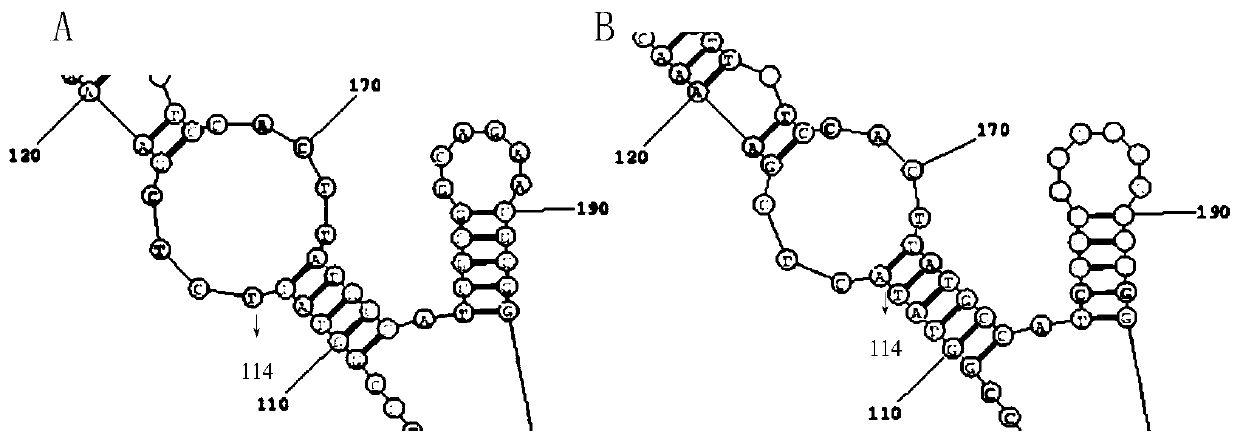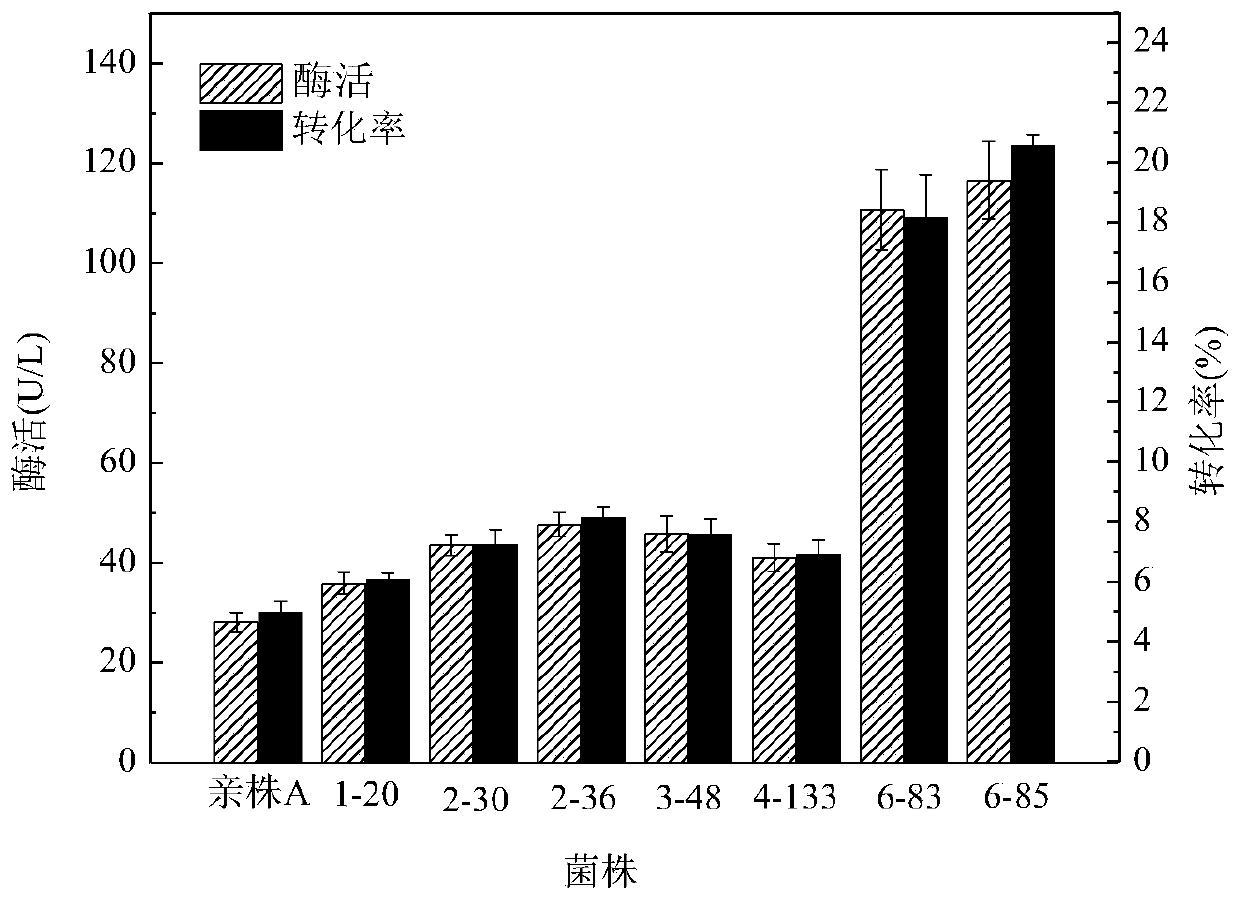A kind of pand mutant gene, encoded protein, carrier, engineering bacteria and application thereof
A technology of genetically engineered bacteria and mutant genes, applied in the field of β-alanine preparation, to achieve the effect of high efficiency and clear breeding goals
- Summary
- Abstract
- Description
- Claims
- Application Information
AI Technical Summary
Problems solved by technology
Method used
Image
Examples
Embodiment 1
[0022] Example 1: Construction of Escherichia coli panD gene mutant library
[0023] (1) Acquisition of the pET28b(+)-panD plasmid containing the E. coli panD gene: Escherichia coli BL21(DE3) / pET28b(+)-panD is the parent strain A (preservation number CCTCC NO: M206114, which has been filed in the patent application CN101210230A ) was inoculated in LB liquid medium, cultured on a shaker at 37°C and 200rpm for 12h, centrifuged at 8000rpm for 5min, collected bacterial cells, and used a plasmid extraction kit (purchased from Shanghai Sangon Bioengineering Technology Service Co., Ltd. ) to extract the plasmid pET28b(+)-panD; get 2 μL of plasmid DNA to measure the concentration and purity of the sample with an ND5000 ultra-micro UV-visible spectrophotometer (Bioteke, USA); the LB liquid medium consists of: peptone 10g / L, yeast powder 5g / L, sodium chloride 5g / L, pH7.0, kanamycin 50μg / mL, water as solvent.
[0024] (2) Establishment of error-prone PCR reaction: (a) Design forward prime...
Embodiment 2
[0026] Embodiment 2: Obtaining of genetically engineered bacteria with high PanD production
[0027] The transformant and parent strain A in the mutant library constructed in Example 1 were respectively inserted into 3 mL of LB liquid medium, and lactose was added to a final concentration of 3 g / L, and cultured on a shaking table at 37° C. at 200 rpm for 1 d. After the culture, take 1.5mL of the culture solution into an EP tube, centrifuge at 8000r / min, 4°C for 10min, and collect the cells. Add 300 μL of L-Asp to make the final concentration 0.2 mol / L, mix well, and transform at 37° C., 200 rpm on a shaker for 12 hours. Take 50 μL of the transformation solution to detect the content of β-Ala and L-Asp according to the HPLC method described in the patent application CN101210230A, calculate the conversion rate, and screen out the mutant strain whose PanD enzyme activity and β-Ala production are significantly improved compared with the parent strain A. PanD enzyme activity is de...
Embodiment 3
[0034] Embodiment 3: Analysis of the panD gene sequence of the PanD high-yield mutant strain
[0035] The plasmids contained in the mutant strains 1-20, 2-30, 2-36, 3-48, 4-133, 6-83 and 6-85 screened in Example 2 were obtained by the extraction method described in Example 1, and Send to Shanghai Sangon Bioengineering Technology Service Co., Ltd. for sequencing to determine the mutated panD gene sequence, and use DNAman software for sequence comparison; the tRNA abundance corresponding to the codon of the mutation site is obtained by querying Codon UsageDatabase, and the results are shown in Table 2. The nucleotide sequence of the mutant strain 1-20panD gene is shown in SEQ ID NO.1, and the amino acid sequence of the encoded protein is shown in SEQ ID NO.7; the nucleotide sequence of the mutant strain 2-30panD gene is SEQ ID NO.2 As shown, the amino acid sequence of the encoded protein is shown in SEQ ID NO.8; the nucleotide sequence of the mutant strain 2-36panD gene is shown...
PUM
 Login to View More
Login to View More Abstract
Description
Claims
Application Information
 Login to View More
Login to View More - R&D
- Intellectual Property
- Life Sciences
- Materials
- Tech Scout
- Unparalleled Data Quality
- Higher Quality Content
- 60% Fewer Hallucinations
Browse by: Latest US Patents, China's latest patents, Technical Efficacy Thesaurus, Application Domain, Technology Topic, Popular Technical Reports.
© 2025 PatSnap. All rights reserved.Legal|Privacy policy|Modern Slavery Act Transparency Statement|Sitemap|About US| Contact US: help@patsnap.com



